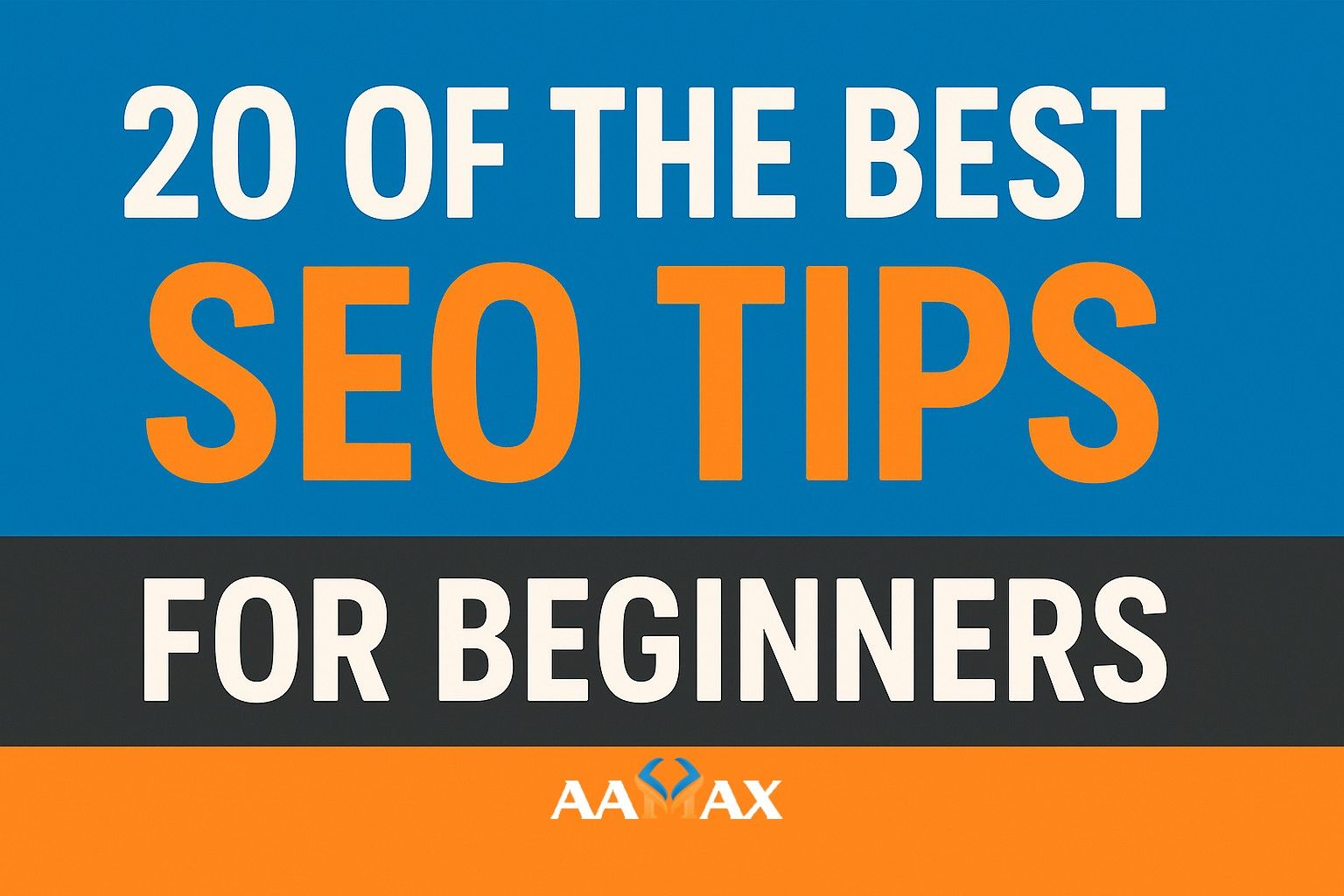
20 of the Best SEO Tips for Beginners
Search Engine Optimization (SEO) is one of the most powerful ways to drive organic traffic, improve visibility, and grow your business online. For beginners, SEO can feel overwhelming, but the good news is that you don’t need to master everything at once. By following proven SEO tips and best practices, you can steadily build a strong online presence that ranks well in search engines.
This guide covers 20 of the best Search Engine Optimization (SEO) tips for beginners. Each tip is designed to help you understand SEO fundamentals and apply them to your website for long-term success.
Why SEO Matters for Beginners
Before we dive into tips, let’s understand why SEO is crucial:
- Over 90% of online experiences begin with a search engine.
- SEO drives long-term, sustainable traffic compared to paid ads.
- High rankings build credibility and trust.
- A well-optimized site enhances user experience and conversions.
If you’re just starting, focusing on SEO ensures your website gets noticed by the right audience.
1. Focus on Keyword Research
Keywords are the foundation of SEO. Beginners should use tools like Google Keyword Planner, Ubersuggest, or SEMrush to find search terms their audience uses. Start with long-tail keywords since they are less competitive and more targeted.
2. Understand Search Intent
Not all keywords mean the same thing. Search intent refers to the reason behind a search query. It can be informational, navigational, transactional, or commercial. Matching your content to search intent improves rankings and engagement.
3. Optimize On-Page SEO
On-page SEO refers to optimizing elements within your website. Focus on:
- Title tags with primary keywords.
- Meta descriptions that encourage clicks.
- Header tags (H1, H2, H3) for readability.
- Short, keyword-rich URLs.
4. Create High-Quality Content
Content is king in SEO. Write blog posts, guides, and resources that are informative, engaging, and well-researched. Aim to provide value that answers your audience’s questions better than your competitors.
5. Improve Page Speed
A slow website hurts both rankings and user experience. Use tools like Google PageSpeed Insights to identify speed issues. Common fixes include optimizing images, reducing server response time, and using caching.
6. Make Your Website Mobile-Friendly
Since Google uses mobile-first indexing, your site must be responsive. Test your website on mobile devices to ensure it loads quickly and displays properly.
7. Use Internal Linking
Internal links help search engines understand your site structure and guide users to other relevant content. For example, linking a blog post about SEO basics to another about keyword research improves engagement and authority.
8. Optimize Images
Search engines can’t “see” images, but they read alt text. Use descriptive file names and alt text with relevant keywords. Also, compress images to reduce file sizes and improve loading speed.
9. Build Backlinks
Backlinks are one of the strongest ranking factors. For beginners:
- Write guest posts for authoritative websites.
- Create share-worthy content like infographics.
- Reach out to industry blogs for collaboration.
10. Use Analytics and SEO Tools
Track performance with Google Analytics and Google Search Console. These tools provide insights into traffic, user behavior, and keyword performance. For deeper research, try SEO tools like Ahrefs or SEMrush.
11. Optimize for Local SEO
If you run a local business, claim your Google Business Profile. Use location-based keywords and encourage customer reviews to improve local visibility.
12. Improve User Experience (UX)
Google values websites that provide a good user experience. Improve UX by:
- Using clear navigation.
- Avoiding intrusive popups.
- Ensuring fast loading times.
13. Write Compelling Meta Descriptions
Meta descriptions may not directly impact rankings, but they influence click-through rates. Write descriptions that summarize the content and encourage users to click.
14. Use Schema Markup
Schema markup helps search engines understand your content better and can lead to rich snippets in search results. Beginners can use Google’s Structured Data Markup Helper to get started.
15. Focus on Content Freshness
Update old blog posts regularly with new information. Search engines reward websites that provide up-to-date and relevant content.
16. Avoid Keyword Stuffing
While keywords are essential, overusing them hurts rankings. Write naturally, focusing on readability and user intent rather than stuffing keywords everywhere.
17. Create a Blog
Blogging is one of the most effective ways to attract traffic. Regular blog posts targeting relevant keywords help you build authority and rank for more search queries.
18. Secure Your Website (HTTPS)
Google considers website security as a ranking factor. Make sure your site uses HTTPS instead of HTTP. An SSL certificate also builds trust with visitors.
19. Use Social Media for SEO
While social media signals don’t directly affect rankings, sharing your content on platforms like Facebook, LinkedIn, and Twitter drives traffic and visibility, which can result in backlinks.
20. Be Patient and Consistent
SEO is a long-term strategy. Don’t expect overnight results. Consistency in publishing, optimizing, and improving your site over time will bring sustainable growth.
Common SEO Mistakes Beginners Should Avoid
- Ignoring mobile optimization.
- Using duplicate or thin content.
- Neglecting technical SEO like sitemaps and broken links.
- Not tracking performance metrics.
The Importance of Combining SEO with Other Strategies
SEO works best when combined with other digital marketing strategies like content marketing, social media, and paid ads. Together, they amplify your visibility and conversions.
Final Thoughts
SEO doesn’t need to be overwhelming. By applying these 20 beginner-friendly tips, you can build a solid foundation that improves your rankings and drives consistent traffic.
If you want expert help building a website and implementing SEO best practices, hire AAMAX. AAMAX is a full-service digital marketing company offering Web Development, Digital Marketing, and SEO Services that help businesses grow online.







